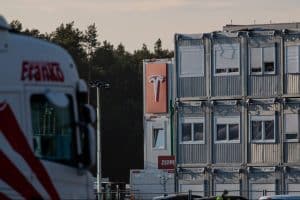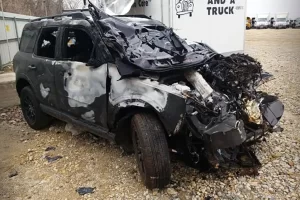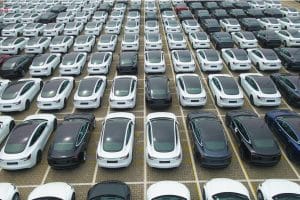Key Takeaways
- Waymo plans to launch autonomous robotaxi services in Washington D.C. in 2026 after announcements for Atlanta and Miami in 2025.
- The Waymo One app will be used in D.C., indicating a direct service rather than through partnerships, unlike other cities.
- Waymo is collaborating with legislators to ensure regulatory compliance for autonomous vehicles in D.C.
- With over 200,000 autonomous rides weekly, Waymo continues to push forward amid competition from Tesla and others in the robotaxi market.
- Jonathan Adkins of the GHSA praises the safety of Waymo’s autonomous vehicles and looks forward to their operation in D.C.
- In Austin, Texas, Waymo partners with Uber for robotaxi services, competing alongside Tesla’s future plans for the city.
- Besides U.S. cities such as San Francisco and Los Angeles, Waymo is testing services in Tokyo, Japan.
- Tesla is preparing to enter the robotaxi market with FSD software, aiming for unsupervised drives and initial services soon.
As the landscape of urban transportation evolves, autonomous vehicles seem to be steering the wheel towards the future. Companies like Waymo are at the forefront, spearheading the development of advanced autonomous technologies. In recent announcements, Waymo has revealed ambitious plans to expand its robotaxi services into several new cities in the United States, with Washington D.C., Atlanta, and Miami as the latest targets. This blog post will delve into Waymo’s strategic moves, competitive challenges from other industry giants like Tesla, and the implications of these developments on urban mobility.
Waymo’s Expansion Strategy: A Closer Look
Washington D.C.: A Monumental Step Forward
Waymo’s announcement to launch autonomous robotaxis in Washington D.C. by 2026 marks a significant milestone. The decision to enter one of the nation’s most politically and culturally significant cities highlights Waymo’s strategic foresight. Unlike deployments in other cities where partnerships have been key, the D.C. services will utilize the Waymo One app directly. This move indicates Waymo’s confidence in its technology and its ability to provide standalone services without reliance on external partners.
Key Markets: Atlanta and Miami on the Horizon
Before its foray into Washington D.C., Waymo is setting its sights on Atlanta and Miami for a 2025 rollout. These cities have been selected for their dynamic urban environments and potential for autonomous technology integration. Waymo’s approach in these cities could serve as a precursor to its broader rollout strategy, helping the company hone its logistical operations and regulatory adaptations.
Regulatory Hurdles: Navigating Legal Landscapes
Introducing autonomous vehicles to metropolitan areas like Washington D.C. involves navigating complex regulatory frameworks. Waymo’s proactive collaboration with legislators demonstrates its commitment to ensuring compliance and safety. The company’s experience in other cities will be invaluable as it works to address these regulatory challenges.
Safety First: Waymo’s Commitment to Security
Safety remains paramount in the autonomous vehicle industry. Jonathan Adkins of the Governors Highway Safety Association has spoken highly of Waymo’s safety protocols, emphasizing their careful consideration of pedestrians, cyclists, and other road users. This endorsement is a testament to Waymo’s rigorous testing and dedication to minimizing risk.
Competition in the Robotaxi Arena: Tesla’s Emergence
While Waymo leads with over 200,000 autonomous rides per week, Tesla is making strategic moves to enter the robotaxi market with its Full Self-Driving (FSD) software. Tesla aims to roll out its services this year, marking a significant step in the competition. Unlike Waymo, Tesla’s approach emphasizes a vision-based system designed to operate without driver supervision eventually. This difference in technology and strategy sets the stage for an intriguing rivalry in the autonomous vehicle sector.
Head-to-Head in Texas: Waymo Meets Tesla
In Austin, Texas, Waymo has partnered with Uber to launch robotaxi services, while Tesla is eyeing the city’s burgeoning tech scene for its own rollout. The convergence of two industry giants in a single locale highlights Austin’s importance as a testing ground for broader national deployments.
Global Moves: Testing Grounds Beyond U.S. Borders
Waymo is not limiting its efforts to the U.S. The company is conducting early pilot testing in Tokyo, Japan, showcasing its ambition to establish a global footprint. This international initiative underscores Waymo’s long-term vision and adaptability to diverse cultural and regulatory environments.
The Road Ahead for Autonomous Vehicles
As Waymo expands its autonomous services, its efforts will likely reshape urban mobility, offering a glimpse of a future where traditional transportation modes are augmented by advanced technology. However, the path forward will require balancing innovation with safety, regulation, and competition. As companies like Waymo and Tesla push the envelope, the evolution of transportation promises to be an exciting journey.





